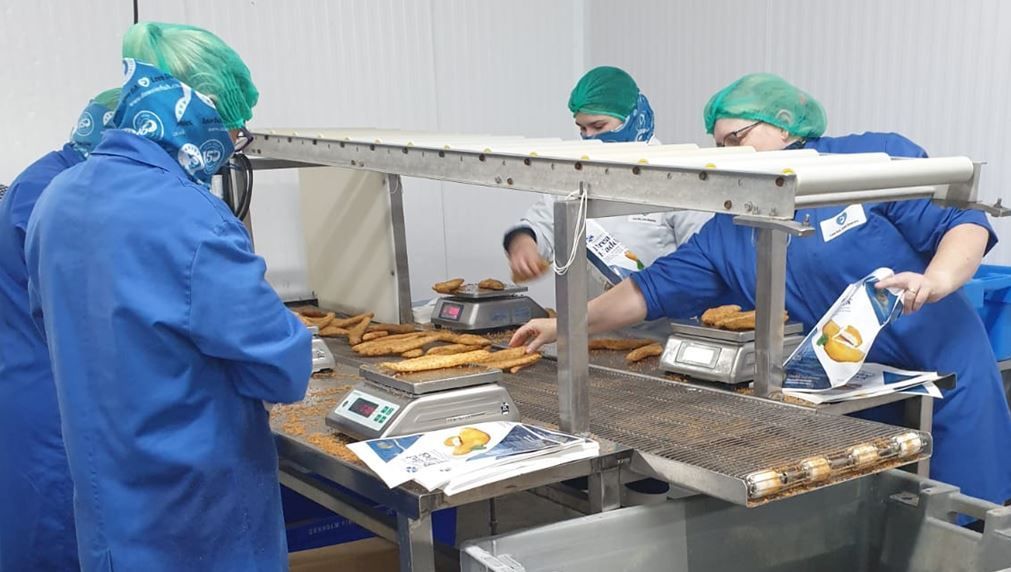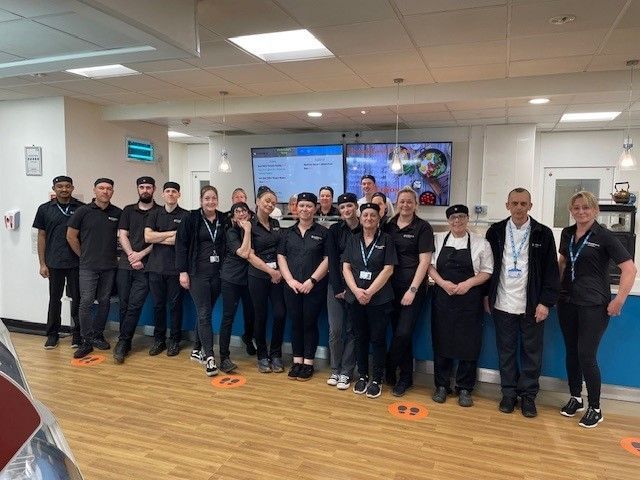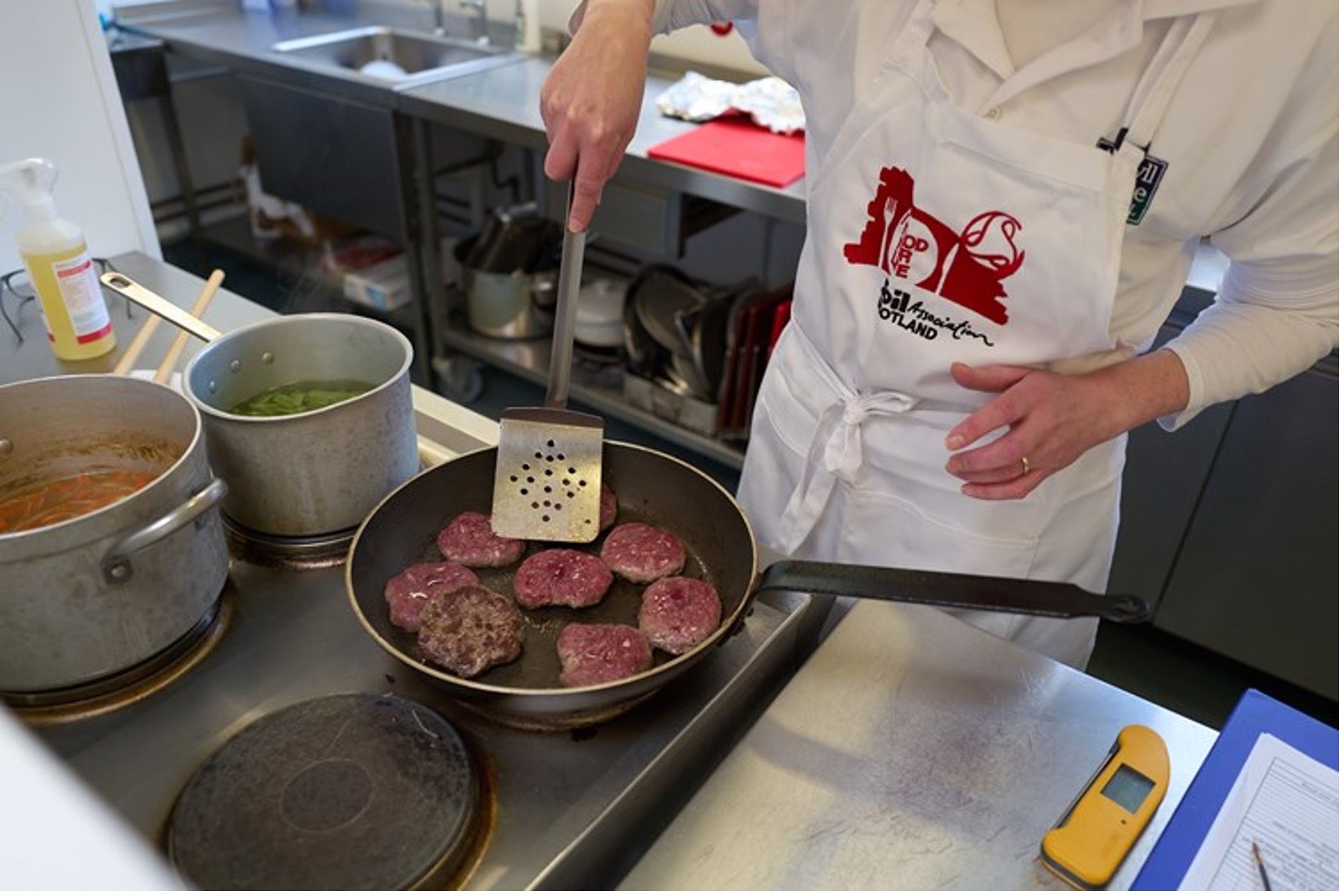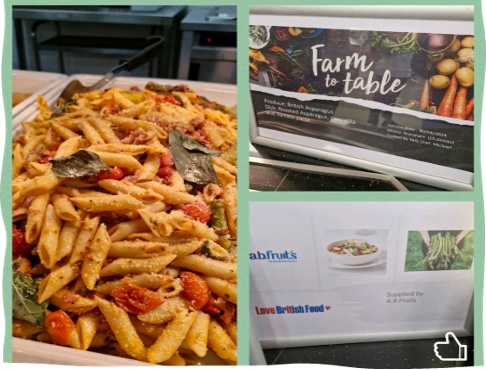Love British Food Encourages Wholesalers to Include Dedicated 'Buy British' Categories
Alexia Robinson
As part of the annual British Food Fortnight, Love British Food has issued an open letter to key wholesale industry leaders, calling on them to support the growing demand for British produce by integrating dedicated "Buy British" categories within their offerings. The letter, signed by prominent chefs and industry leaders, highlights the vital role wholesalers play in strengthening the British food supply chain.
British Food Fortnight, running from 20th September to 6th October, celebrates the quality of British cuisine. It provides an opportunity for businesses across the UK to spotlight locally sourced produce and support British farmers and producers.
The letter has been sent to all major wholesale industry leaders.
If anyone would like to sign the letter, please email info@lovebritishfood.co.uk.
Letter in full:
Let's Love British Food - An Invitation to Wholesale Industry Leaders
Dear Wholesale Industry Leaders,
As the country embraces and enjoys British Food Fortnight, it is an important moment to reach out to a vital part of the British food supply chain - wholesalers.
This two-week celebration isn’t just about appreciating British cuisine; it's about making substantial, sustainable changes that benefit our farmers, our economy, and the health of our nation.
Currently, thousands of caterers across the UK are curating tailored menus that highlight the quality and diversity of British produce, a testament to the country's culinary heritage. We’ve seen that the enthusiasm for British food is vast and growing. This surge is supported by a wide array of hospitality and public sector organisations, all keen to showcase what Britain has to offer.
Earlier this year, during our public sector event, we gathered and collated insights through a comprehensive report that came to conclusions from leading chefs and industry stalwarts.
Our discussion revealed a clear challenge: the desire to source more British produce is strong right across the UK, yet there is a blockage. Both farmers and producers are eager to supply, and kitchens are ready to serve - however supply chain logistics complicate this enormously.
While some industry leaders have commendably established a dedicated British category, making it easier for businesses to source local produce, it is imperative that more follow suit. By integrating a 'Buy British' category within your offerings, you not only simplify the procurement process for caterers and chefs but also align with a growing consumer demand for transparency and local sourcing. It is the very definition of a ‘win-win’ for all involved, not to forget the positive message you are sending from your company that you are dedicated to supporting British producers.
The benefits of enhancing the visibility and accessibility of British products through your platforms:
- Economic Growth: Boosting the sales of British foods supports not only local farmers but also the wider UK economy.
- Environmental Impact: Shorter supply chains mean reduced carbon footprints, an aim we all share.
- Health Benefits: Fresh, locally sourced produce is key to promoting healthier food choices among consumers.
- Cultural Heritage: Preserving and promoting British culinary traditions.
- Company Profitability: The British public want to buy British - give them the option and feel the financial rewards.
This British Food Fortnight, we invite you to consider featuring, or boosting, a British category.
We, along with prominent figures in the industry, are ready to support and collaborate with wholesalers willing to make this commitment.
Through joint efforts, we can further deliver positive change across the entire food industry.
Let's lead this change together.
Kind Regards,
Graeme Collie, Executive Chef, King’s College London
Alexia Robinson, CEO, Love British Food
Chris Knott, Head Development Chef, Loughborough University
Graham Senior, Executive Chef, Southampton University
Alex Sim, Development Chef and Sustainability Champion, Bristol University
Ben Bartlett, Board Member, Master Chefs Great Britain & Director, Love British Food
Karlene Gaskell, Executive Chef, University of Reading
Dunk Parsonage, Business Development Chef, Flora Food Group & Isle of Wight Technical College
Michael Croy, Executive Chef, University of St. Andrews
Liam MacDonough, Head of Catering Operations, University of Edinburgh
Share:
You may also be interested in...

Background NHS Greater Glasgow & Clyde (NHSGGC) is the largest Health Board in Scotland, providing a catering service for approximately 6,000 patients each day across 4 sectors covering 16 hospital sites. These range from small outlying units to the Queen Elizabeth University Hospital Campus, the largest Critical Care complex and Emergency Department in Europe.

Yeovil District Hospital (YDH) are committed to improving the care experience for their patients, staff, and visitors. They have an innovative approach to improving meal provision, with a special focus on tackling malnutrition and dehydration, streamlining meal delivery, and enhancing both the patient and customer experience. Through strategic improvements in menu design, waste management, and patient-centric service, the hospital catering team has successfully met the challenge of providing nutritious, appealing meals that cater to the diverse needs of the hospital community. As part of their commitment to sustainability, a comprehensive waste reduction initiative that targets food waste at all stages of meal provision—from kitchen preparation to patient plated and unserved meals was introduced. By partnering with food service providers and leveraging technology, they implemented real-time waste tracking, allowing them to identify inefficiencies and reduce unnecessary food wastage. Additionally, they transitioned to biodegradable, recyclable meal packaging, reducing their carbon footprint and contributing to the hospital’s broader environmental goals. The Catering team have come a long way in recent years, demonstrating fantastic improvement for not only patients, staff but also visitors, with many changes including waste, improving service levels and patient/customer experiences. The in-house service has seven chefs at working YDH included in the team of over 40 staff, the Catering department has grown in recent years with the influence from new management with Catering and Hospitality background. The use of local and seasonal provisions are used to write menus for both patients, staff and visitors, has not only reduced costs but also reduced Caterings carbon footprint & sustainability in food, the catering team work closely with suppliers in the KPI monthly meetings to talk about seasonal provisions Regular monthly meets between the Catering and the Dietitians was implemented back in 2018 and has paid dividends, with both departments working closer together for patient nutrition and hydration, the chefs work with the dietitians on menus to make sure there is a well-balanced menu (remember food is medicine) the newly appointed Catering Liaison Officer (CLO) in 2023 is the link between the Catering and Dietitians but also the patients. The CLO carries out weekly surveys from staff and visitors, including speaking directly with the patients on the wards, this has allowed the Catering team to make changes by listening to the feedback, it gives the team a better understanding of what is and isn’t liked from the most popular meals to the not so popular meals and what sides of vegetables go with what main courses, this also helps with portion sizes and waste, there is also a suggestion box in the staff canteen as well as QR codes for feedback. Menus at YDH are written 8 days in advance by the chefs, with the use of seasonal provisions, using local British ingredients from local suppliers. The chefs working closely with the Dietitians in the monthly meetings, write varied well-balanced menus, dried herbs are banned in the kitchen with the chefs having their own herb garden outside in the seating area. The patient-centric strategy focuses on creating the environment where the needs, preferences, and experiences of patients are at the heart of every decision made. This approach improves outcomes, enhances patient satisfaction, and drives better care delivery, the team commitment is consistently communicated of the importance of a patient-centred approach which will keep improving patient outcomes and experiences. The Catering team have regular training sessions, encouraging staff to take an active role in enhancing the patient experience by providing them the tools and autonomy to solve patient issues quickly and effectively, by phone or in person. Part of the Catering Liaison’s Officers role is to work with not only dietitians but clinical staff, working together on patients care plans, which includes their nutrition and hydration. A newly refurbished staff canteen called the Breeze Café offers a clean, quiet, and accessible facilities including a garden (in the summer) for staff, visitors and patients to visit and enjoy the talented chefs’ delights, from the Deli-bar to Asian Thursday and a fantastic carvery with three meats and proper homemade gravy every Wednesday and Sunday is a must try. Focusing on mealtimes, the Catering team work closely with the Housekeepers who serve the food at ward level ensuring the service of meal times run as smooth as possible, with late meals being delivered for any patient outside of lunch or supper times, digital meal time ordering as close to meal times not only ensures the patient gets what they ordered, it has helped reduce food waste and efficiency. The development of a QR code system where patients can look at the coming weeks menu, with pictures and nutritional information will be rolled out for 2025.

Love British Food is delighted to announce that its unique podcast series has been shortlisted for the prestigious Marketing Award at the 2025 Public Sector Catering Awards, marking a significant recognition just one year after its launch. Led by Derek Wright, Director of Love British Food and Head of Catering at Blackpool Local Authority, and expertly edited by Georgina Wright, the podcast has quickly gained recognition for tackling some of the most pressing and complex issues in the UK food supply chain. Since its debut, the Love British Food podcast has featured engaging and thought-provoking conversations with voices from across the sector, including caterers, farmers, chefs, procurement leads, educators and public sector leaders. Episodes have explored everything from sustainability and supply chain resilience to the challenges of delivering nutritious British food in schools and hospitals. Each episode concludes with a popular seasonal food feature led by Ben Bartlett, Director of Love British Food and Director of Master Chefs GB, highlighting the importance and versatility of local seasonal British ingredients. Episodes start with an update from our resident farmer, Sam Mallinson who is a 3rd generation arable farmer from Lancashire. Sam shares monthly updates about his family farm in Lancashire. Commenting on the news, Alexia Robinson, Founder of Love British Food, said: “This shortlisting is a fantastic achievement and a real testament to the energy, honesty and passion that goes into every episode. Huge congratulations to Derek and Georgina, our Farmer-in-Residence Sam, and of course Ben Bartlett for creating something truly original. These podcasts are the first to really cover the full farm-to-fork journey, through insightful conversations with the people who keep our food system going. We’re proud to be giving them a platform.” The awards ceremony will take place on Thursday 24th April at the Hilton London Metropole, where winners will be revealed in a celebration of excellence across the public sector catering landscape. Podcast links: https://www.lovebritishfood.co.uk/podcasts

On a crisp morning in the heart of Argyll and Bute, the small community schools on Islay and Jura are buzzing with excitement. In the lunch hall of Small Isles Primary, a group of children eagerly line up to try something new - a plate of wild venison meatballs, freshly prepared and sourced from the very hills surrounding their homes. This is not just another school meal - this is the future of sustainable, locally sourced food in action. The groundbreaking pilot project, launched in partnership with Argyll and Bute Council, Wild Jura, and Food for Life Scotland, aims to bring the rich flavours of Scotland’s wild larder to school children while promoting sustainability and supporting the local economy.

Our Prime Minister Keir Starmer was quoted in an interview last week by saying voters must choose between a 'tax break' for farmers or tackle the NHS backlogs. How about our government invests in farming and start to revolutionise the food system to produce highly nutritious food in more accessible places and affordable avenues to ultimately reduce the consumption of ultra processed foods and to deduct revenue and profit from the large corporations who are contributing to the current obesity and mental health crisis? Surely the corporate fat cats are morally and directly responsible for the heavy burden upon our NHS? Jenny Jefferies explores further the widening gap between farmer and consumer for Love British Food…

Love British Food and No Farmers, No Food are delighted to announce a partnership dedicated to promoting British farmers. Together, they will champion initiatives to ensure British food is the primary choice in public institutions and push for fair supermarket pricing that reflects the true value of our farmers' hard work.

Love British Food, the leading organisation promoting British food at grassroots and industry levels, is delighted to announce the appointment of Cathy Amos as Non-Executive Director. Cathy, who currently holds the position of Head of Customer Marketing at Brakes, is celebrated for her extensive experience in the food service sector, particularly within the public sector which is integral to Love British Food's mission. Cathy Amos has devoted her career to the food and hospitality industry, with a focus over the last decade on supporting caterers in public and care settings. At Brakes, she leads a team of development chefs who specialise in these sectors. She has also collaborated closely with leading contract caterers and various public sector bodies, including PSC, LACA, TUCO, NACC, and the HCA. She joins other non-executive directors: Derek Wright (Blackpool Catering), Tim Radcliffe (NHS England) and Ben Bartlett (Master Chefs GB).










